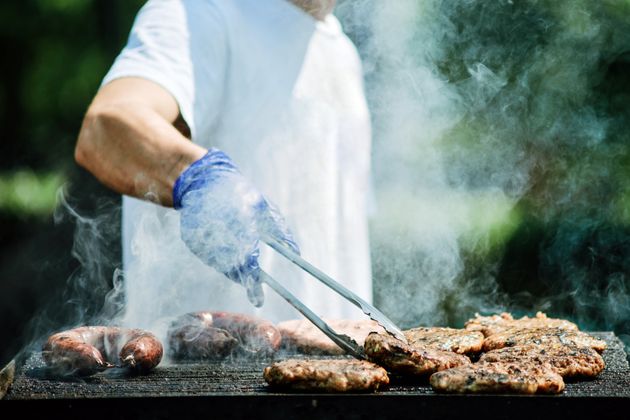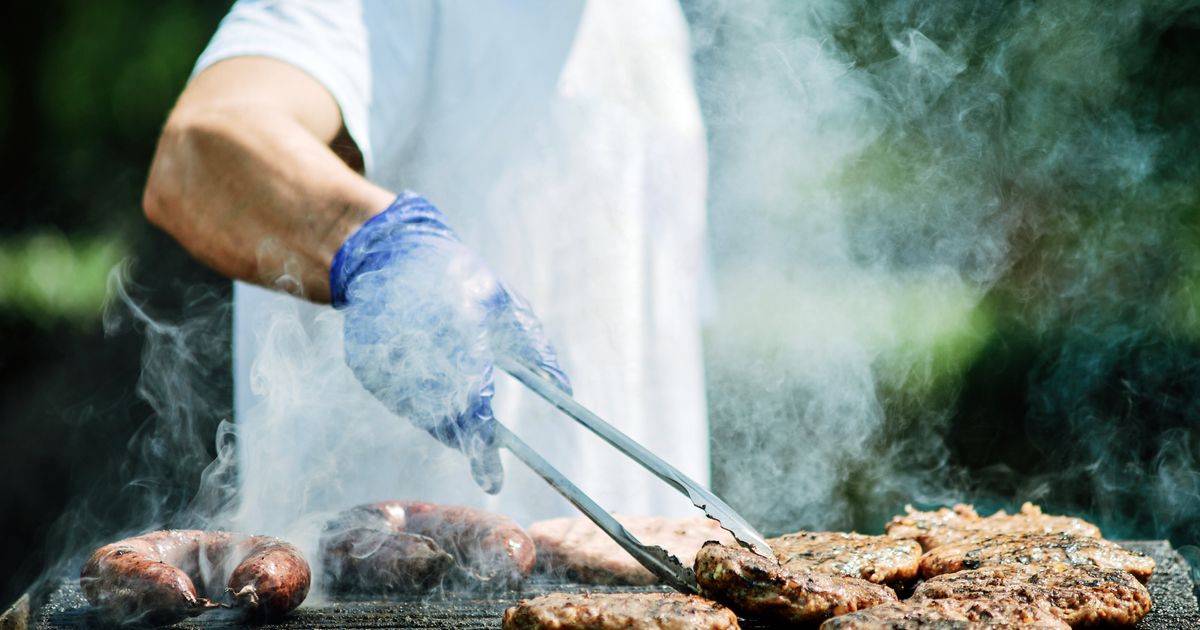With extreme temperatures sweeping the UK, people have been urged not to use barbecues in parks, dunes and woodland, as well as on balconies, due to the massive fire risk.
A lack of rainfall in July and August means grass is bone dry and all it takes is a single spark from a barbecue to light up entire stretches of land – not to mention neighbourhoods.
Advertisement
During the first week of August alone, London Fire Brigade (LFB) mobilised thousands of firefighters to 340 grass, rubbish and open land fires – an eightfold increase on the 42 during the same week last year.
To try and help ease the burden on fire brigades, some supermarkets have now stopped selling disposable barbecues due to the fire risk they pose in the hot weather. Sainsbury’s and Tesco are the latest stores to remove the items from sale, following in the footsteps of Marks and Spencer, Aldi and Waitrose.
LFB’s assistant commissioner Jonathan Smith has warned against barbecuing in open spaces or balconies. But what about barbecuing in your garden at home – is it safe?
Advertisement
It’s a tough question to answer.
There’s no advice explicitly telling you not to barbecue at home in your garden. Nobody wants to be a party pooper when it comes to people enjoying the nice weather, but realistically you do need to weigh up whether it’s worth the potential risk of setting your garden alight – and annoying your neighbours into the bargain, as the lack of wind means smoke tends to stick around.
If you are absolutely desperate to get grilling, you should take extra precautions. Your barbecue should be situated well away from your house and away from dry grass, shrubbery, bushes or trees, advises Andrew Chalk, a home insurance specialist at NFU Mutual.
If your barbecue is in need of a clean, make sure you do it. “Hot ashes or sparks are more likely if the barbecue hasn’t been cleaned since it was last used,” says Chalk, “so people should regularly clean their barbecues of ash and old grease.”

Maryna Terletska via Getty Images
Homes with a thatched roof are at particular risk of fire, so make sure any barbecues are positioned as far away as possible to ensure sparks can’t land on the thatch.
Advertisement
When you are cooking outside, Chalk recommends having a bucket of water on hand in case a spark does ignite anything nearby. Also consider wetting the area around the barbecue to make things a little less flammable.
It goes without saying that barbecues should always be operated outdoors, so don’t light one up indoors thinking you’ll reduce the risk of fire. This is incredibly dangerous due to the carbon monoxide fumes.
LFB also warns against using petrol, paraffin or any flammable liquids on your BBQ. Firelighters are a much safer option.
Once you’ve finished cooking, remember that your BBQ can remain hot for hours afterwards. You don’t want to put your still-smouldering-barbecue in your shed, for example, as you could inadvertently cause a blaze.








